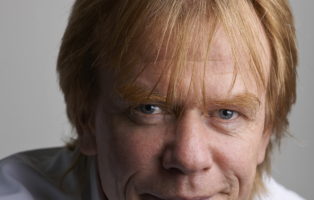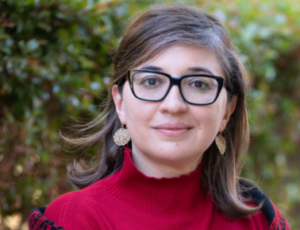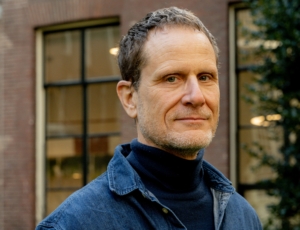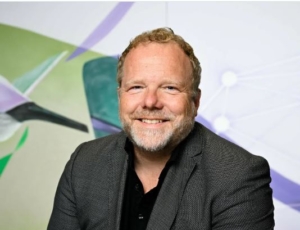Weekly Fellow: Eus van Someren
Van Someren about the moral duty of understanding insomnia
What did you want to become when you were young?
“Actually, I always wanted to become two different things at the same time. First, when I was five years old, I wanted to be both farmer and actor. Unfortunately, I do not have green fingers, so that didn’t work out. Slightly later, my interest in science grew. I have wonderful memories of leafing through De Kijk (a Dutch science magazine) in my pyjamas during the weekend and reading about rockets and infinity and such. And soon enough, I noticed that I was very interested in music too. So back then, I was fascinated by both science and music at the same time.”
Could you briefly explain what you are working on right now?
“For that, some background knowledge is needed. I started at university with physics, since I had never thought of anything else but the natural sciences. That didn’t turn out to be as I had hoped it would. Then I did a career choice test, which showed my interest in social sciences, something I had never thought of before. Then I started reading and I discovered the existence of the field of psychophysiology and this really triggered my enthusiasm. I started studying psychophysiology and near the end of my studies we did a practical, in which we measured people’s sleep. I loved it. I was completely sold. Then I started at the Netherlands Institute for Neuroscience and there I focused on sleep-wake rhythms. I thought it was interesting, but I wanted to focus solely on sleep. I realized that chronic insomnia was what fascinated me the most, precisely because it is so elusive. What is different about people who have insomnia? It is socially very relevant, since it is a very common issue. Major questions have not been answered yet: What is consciousness? How to measure unconsciousness? Is this even measurable? I specifically try to understand the difference in the brain of someone with chronic insomnia. Someone’s life history, genetic predisposition, but also someone’s daily surroundings are involved here. What determines whether one night is better than the other? And what is the impact of your surroundings and daily activities?”
What do you wish to achieve during your stay at NIAS?
“I hope to at least write an overview article about the physiology of insomnia. Two and a half years ago I received an invite to do this, from Physiological Reviews, but I had to spend so much time on all kinds of extra tasks and administrative pursuits, I noticed that there wasn’t even time enough for such an important invitation, that would allow me to look back and summarize what I and others have found out in the past decade of the research. And that is so great about my time here at NIAS: all these extra activities have disappeared. I can fully focus on writing now. It is completely different from sitting in my own office.
The overview article will happen for sure. But while I am going to write it, I need to go through so much information that I may just as well write a book about it. Only I am not sure yet whether this should be a book for people with an academic interest, so some sort of handbook about the biology of insomnia, or a book in which I try to explain insomnia as clearly as possible for the general public. I leave open how much I will get done during my stay at NIAS, but I think I will write a book for the general public after I have written the overview article because there are so many misconceptions when it comes to insomnia. My aim is to clearly communicate what insomnia actually is. It almost feels like a moral duty. People with insomnia often feel misunderstood, and that is correct, they are. Maybe such a book will create some more respect for people with insomnia.”



